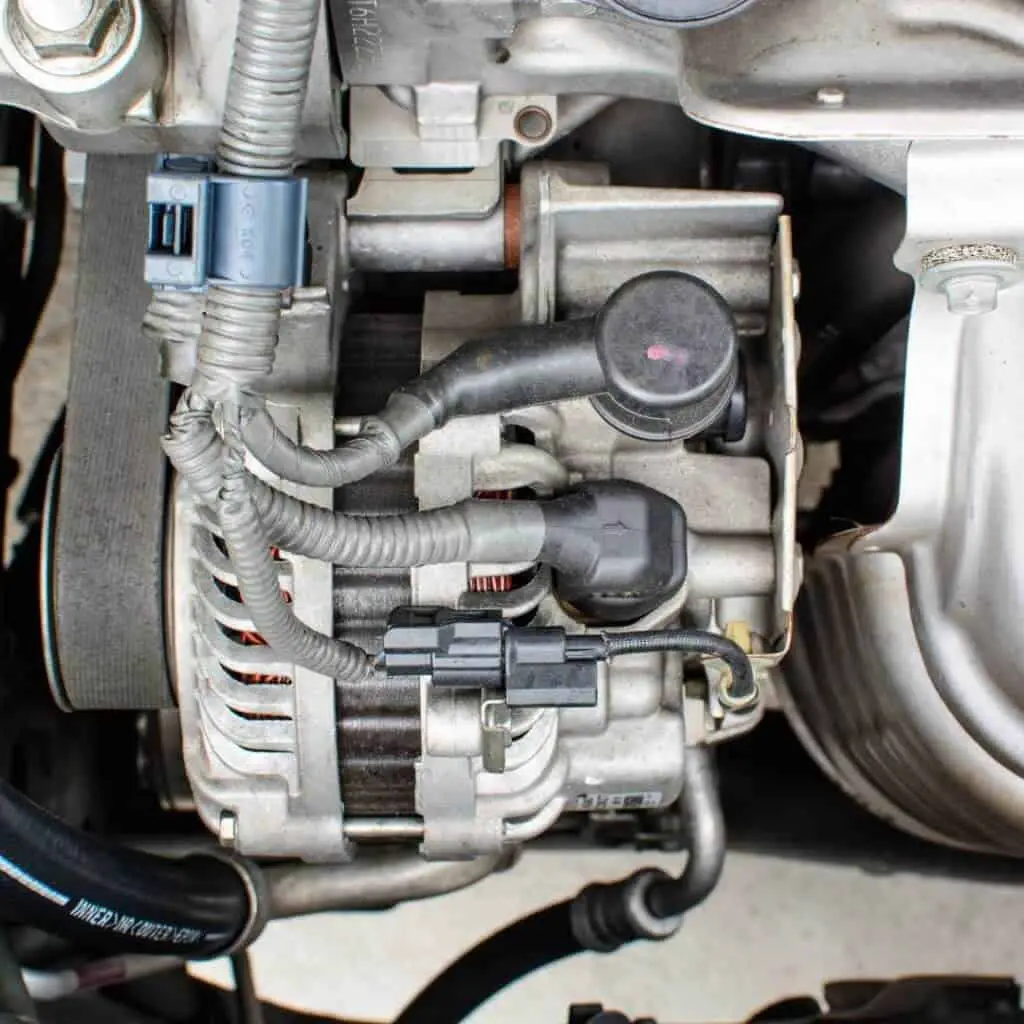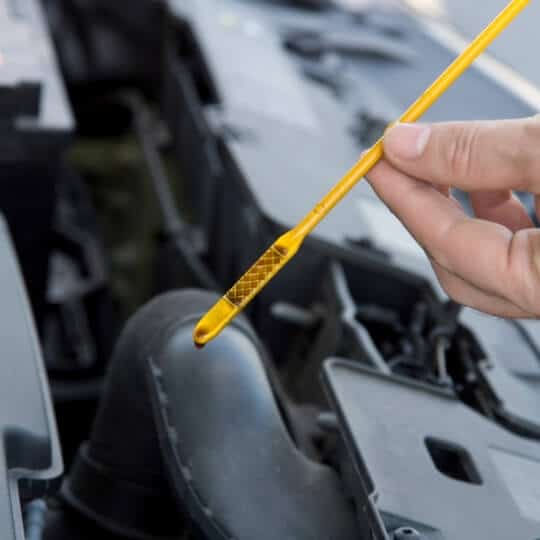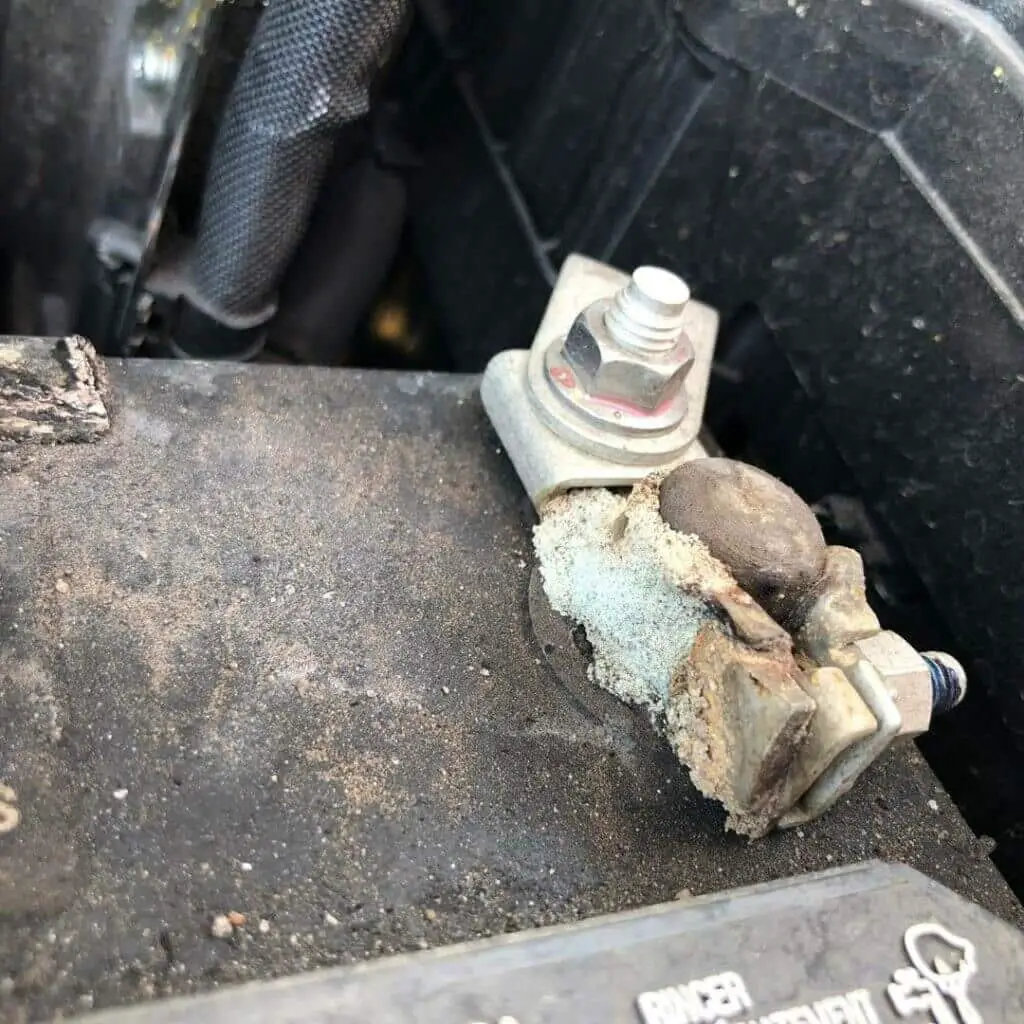Misfuelling can happen to anyone. This can cause malfunction on any diesel car. First of all, you should be aware of petrol in diesel cars symptoms.
While a cautious driver will rarely end up having issues with the wrong fuel being poured into their car, the problem may still occur.
Petrol in diesel car symptoms
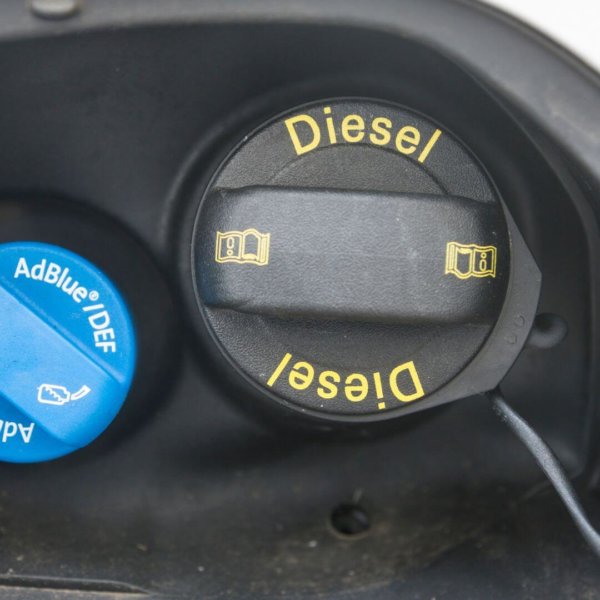
The most common petrol in diesel cars symptoms include less engine power, excessive smoke, and loud knocking under the hood. It’s important to say that initial repairs may still be on the lower end when it comes to cost if you notice these symptoms early. Letting the problem develop can cause huge costs of engine repair.
- Loud knocking sound
A diesel car with petrol poured into it will not be quiet. Simply saying petrol is more refined and can’t work in diesel engine.
Accelerating after petrol has been poured into a diesel car will lead to very loud knocking sounds coming from the engine. Weird sounds will be your first and most apparent warning. However, it’s far from the only one.
- Excessive smoke coming from the exhaust
The next sign that something is wrong will be from the exhaust. There will be a huge amount of smoke produced by the exhaust. The smoke itself will be very deep black. It’s the side effect of petrol not burning correctly in diesel engines.
While older cars and certain vehicles tend to release a lot of smoke, it’s different from having petrol in a diesel car. However, there are always other symptoms to confirm the issue.
- Little throttle power
Excessive smoke coming from the exhaust.
Everybody will know full well how their car accelerates. Acceleration is something we do each time we drive, and it takes very little time to see when something is off. When petrol is poured inside of a diesel engine, the symptoms our acceleration will experience are even more obvious.
Namely, accelerating becomes quite difficult. You won’t get much thrust from the engine no matter how hard you try, and RPM will not go above 2000. [2]
With these symptoms, you should be able to note the problem before the engine gets damaged more. Even a short drive may be enough to feel these factors kicking in.
If any symptoms appear, it’s healthy to be suspicious about the fuel we currently have in our tank full of gas. Let’s check how to investigate it further.
Read Also: Best Cold Air Intake For Camaro SS
How to detect and resolve petrol in a diesel car
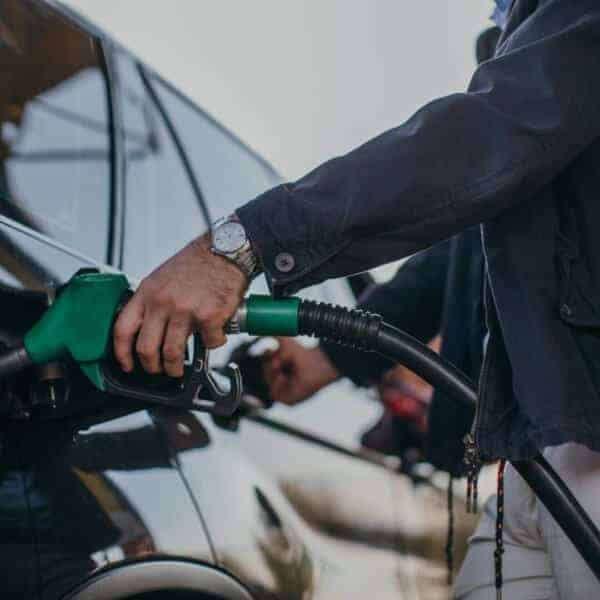
Thankfully, we aren’t left incapable of doing anything when a problem occurs. We can do some investigative tricks to confirm whether petrol has been poured into our tank. Whether these prove us right or not, we should be privy to some available solutions.
Check the fuel receipt
While we are often quick to throw receipts away, this is one of the cases where they may come in handy. The receipt can tell us if the fuel we paid for was petrol or diesel. Often, even if a mistake is made in pouring the fuel, the bookkeeping end is accurate.
This is your first check, but it shouldn’t be counted as conclusive evidence. Not to mention that sometimes we may throw the receipt away or not even receive it, the latter being a whole other can of worms. So make sure to conduct some other checks to get the full answer.
Check how the fuel smells
The simplest DIY action you can take is to smell the fuel from the tank. Don’t inhale too hard because either type of fuel can cause slight health problems, but ensure an accurate reading of the smell.
Open the fuel cap and check the smell. Petrol has a recognizable acrid smell to it. Even those who do not frequently get in contact with petrol may be able to note the scent even when it’s only a small part of the atmosphere we breathe in.
Benzene is the key factor for this recognizable smell, which may prove helpful in quickly concluding your investigation. [3]
Diesel has quite a different smell from petrol. For starters, the texture is more akin to that of oil. The scent itself is more similar to kerosene, although, depending on diesel’s quality, it may have the smell of rotten eggs.
These two smells are quite distinct, so smell tests are a safe way to conclude if there are some fuel issues present.
Difference between petrol and diesel car
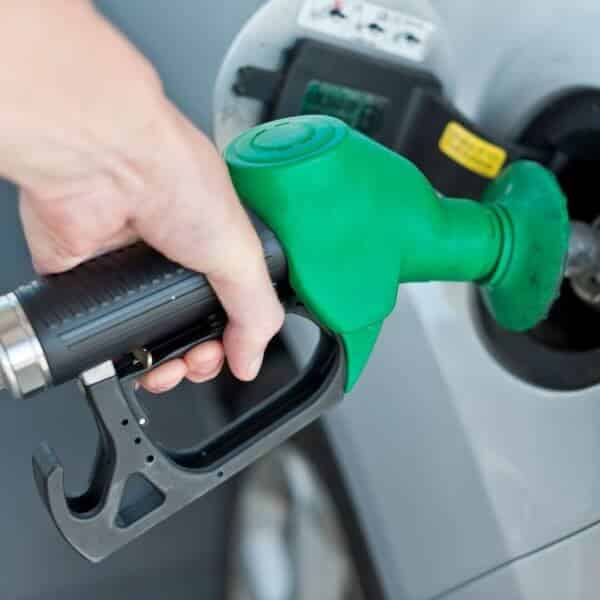
To those unfamiliar with cars and different fuels, it may be hard to distinguish the differences. However, these are quite important for understanding the danger of petrol in diesel cars and overall engine behavior.
How they operate
Aside from fuel, these engines differ in how they operate. For example, a petrol engine utilizes something called the Otto cycle to work. It is a typical cycle for spark-ignition piston engines. This spark-ignition system is used to light the fuel, in this case, petrol, and produce energy.
The petrol engine has a four-stroke cycle. The operating procedure starts with the intake of fuel and air. Next up is compression of the mixture, then the fuel combusts, and the exhaust gets rid of the exhaust gasses.
For diesel engines, the overall process is somewhat different. The diesel engines utilize the Diesel cycle. The diesel cycle is a combustion process of reciprocating internal combustion utilized within engines fueled by diesel.
There is still the four-stroke system with a key difference. Rather than having a combustion stroke, diesel engines have a power stroke.
The diesel fuel is sprayed into the combustion chamber via injectors during this stroke. After which, it ignites from the hot compressed air from the compression step.
The key difference is that the air and fuel aren’t mixed before combustion but rather during it, with the injectors delivering fuel to the chamber.
The difference in operation leads to a huge difference in required fuel. For example, the petrol engine requires volatile fuel, which can easily combust in the mixture, while diesel requires more lubricating fuel. The lubrication is required for the fuel to better go through the injectors.
Fuel efficiency
With the different fuel types, we may aim to achieve other things. Fuel efficiency is a pretty common concern. The more you drive about, the more of a factor this factor is. In this respect, petrol care has lower fuel efficiency than diesel.
Diesel is usually considered the best choice for those seeking to save money on fuel. Not to mention petrol is more expensive when it comes to fuel prices, which means you’ll be saving even more with diesel.
Can a diesel car run on petrol?
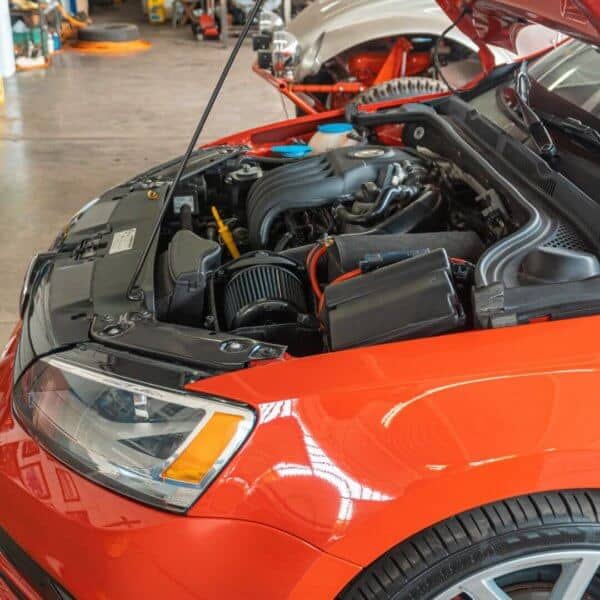
It can be for a short time, but you shouldn’t do it. While petrol is unsuited for diesel engines due to different ways those utilize fuel, it can still generate some energy. Hence, the machine can still run for a few minutes despite disastrous consequences.
Few liters of petrol (less than 5% of full tank) won’t hurm engine in most cases.
Wrong fuel in car symptoms
We reiterate once again: don’t put petrol in diesel engines. The worst symptom of this is that petrol will cause severe engine damage. Furthermore, petrol will reduce the lubrication of your car parts, which can result in fuel systems suffering irreparable harm.
Among the aforementioned symptoms that can warn you about the presence of petrol in the tank, there are a few imminent side effects. First, the inside of the car will start to smell due to poorly burnt fuel, noticeably bearing that acrid petrol smell. It’s likely to be followed by chugging and complete shutdown of the engine.
How to stop putting petrol in a diesel car?
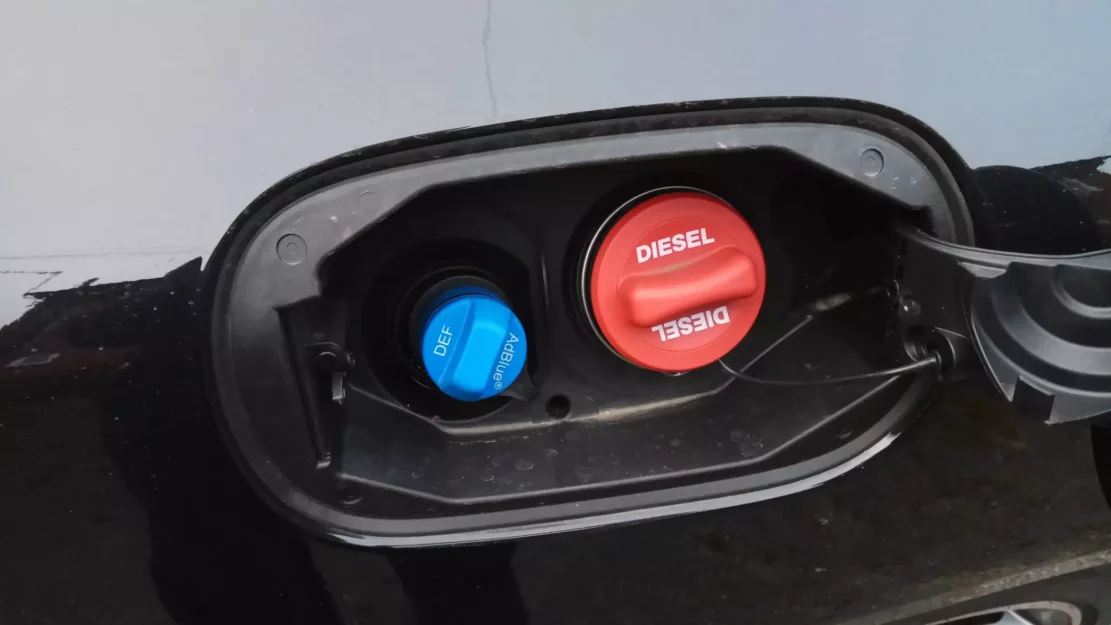
While care and discretion are required in order to avoid misfuelling, it’s nice to have some additional ways of mitigating the possibility of it occurring. Thankfully, there are a few options for doing so.
- Colored cap
A simple colored cap that had a warning sticker on it may be enough for some. This type of misfuelling prevention is cheap and easy. Pick the color based on the color most associated with the fuel you pour to further reinforce the association.
- Filler-neck filters
It’s possible to prevent fuel from entering the fuel tank too. Filler-neck devices can achieve this with no problem. These neck fittings are capable of preventing narrow petrol nozzles from entering the neck and pouring down the wrong fuel.
The item can sometimes filter out fuel nozzles that are fitting for the tank but, for whatever reason, are still filtered. Oftentimes, the thickness of the nozzle will be the reason, but when such situations occur, it’s possible to remove the item or pour it from another nozzle.
Read Also: Can You Mix Premium and Regular Gas
Conclusion
Petrol in a diesel car is something we simply shouldn’t do. The danger this presents to our engine is immense and will often result in costly repairs. The symptoms of misfuelling will be more apparent, so make use of that to avoid heavy problems.
Keep in mind that discretion and care are the best prevention to this problem but not the only ones. Various forms of prevention, such as differently colored caps or neck fitting devices, are great at preventing the problem before it occurs. Make use of them and keep your car safe.
Read Next: Problems After DRP Removal

